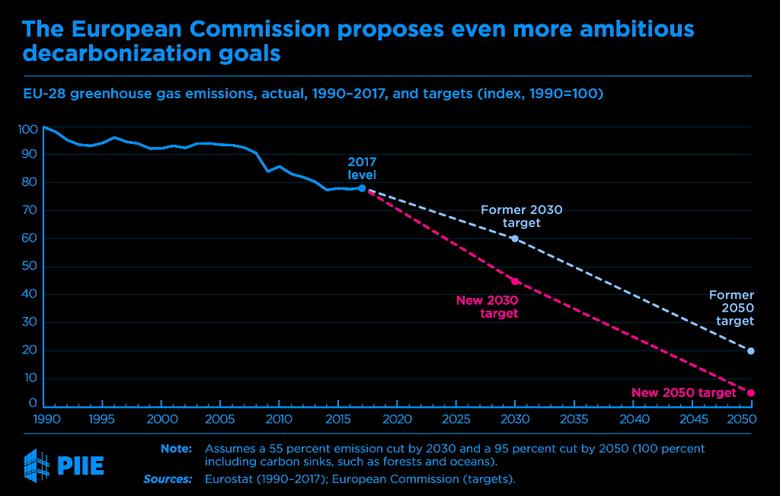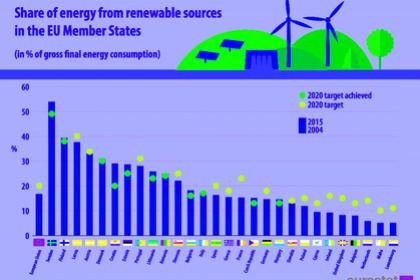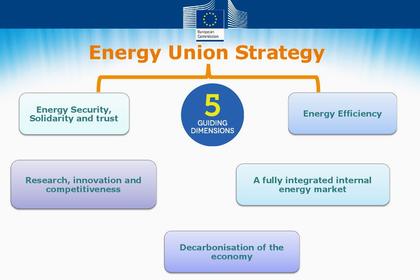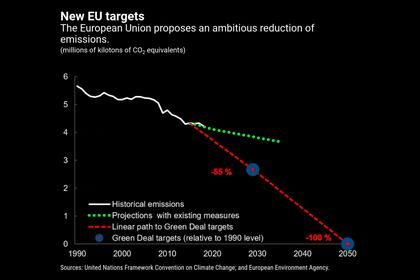
EUROPEAN DECARBONIZATION'S BORDER

PLATTS - 23 Oct 2020 - A proposed Carbon Border Adjustment Mechanism should be imposed from 2023 to cover imports of electricity and energy intensive products including metals and chemicals into the EU, the EU Parliament's environment committee said in a report late Oct. 22.
If introduced, any CBAM would have implications for Europe's energy intensive industrial sectors by reducing the import of carbon intensive goods from other countries; potentially remove the need for free allocation of carbon allowances for those sectors in Europe; and could cause repercussions for Europe's trade relations around the world.
The EU Parliament "considers that a CBAM should cover all imports, but that as a starting point already by 2023 it should cover the power sector and energy-intensive industrial sectors like cement, steel, chemicals and fertilizers, which continue to receive substantial free allocations, and still represent 94% of Union industrial emissions," the committee said in the report.
The European Commission is expected to make a legislative proposal in 2021 to introduce a CBAM, and the EU's regulators are working on how and when this could be applied in a way that is compatible with World Trade Organization rules as well as the 2015 Paris Agreement on climate change.
The EU Parliament "supports the introduction of a Carbon Border Adjustment Mechanism as a way to reduce global GHG [greenhouse gas] emissions in the pursuit of the Paris Agreement objectives; states unequivocally that this mechanism should serve to better address GHG emissions embedded in international trade, thereby incentivizing climate action both within the Union and by our trading partners, and not as an instrument for protectionism," the committee said.
The committee said it "strongly deplores the non-cooperative and disloyal behavior of some of the union's trade partners in international climate negotiations, as recently observed at COP25," and said this behavior "hampers our collective global ability to reach the objectives of the Paris Agreement."
Reducing emissions, ensuring competitiveness
The debate over carbon border measures flows from the EU's policy of imposing a price on carbon emissions in the EU which is not replicated in much of the rest of the world, with some exceptions, presenting a threat to European carbon-intensive industry's competitiveness.
To resolve the issue on a temporary basis, Europe's industrial sectors have qualified for free carbon allowances under the EU's Emissions Trading System to protect against competition from imports not covered by carbon pricing.
However, this has largely removed the incentive for European industrial companies to reduce their CO2 emissions, leaving the power sector to take on the bulk of the work on decarbonization.
EU regulators want all sectors to contribute to a low-carbon economy, raising pressure to phase out free allocation for industry in favor of new measures intended to drive emissions reductions both within outside the EU.
The EU's domestic GHG emissions fell 23% below 1990 levels by 2018, while at the same time, emissions embedded in international trade have been rising constantly, undermining the EU's efforts to reduce its global footprint, the committee said in the report.
The emissions content of the EU's imports should be accounted for on the basis of transparent and reliable product-specific benchmarks representing the global average GHG emissions content of individual products, the committee said.
"The carbon pricing of imports should also take into account the country-specific carbon intensity of the electricity grid," it said.
CBAM to link to EU carbon prices
The parliament "stresses that carbon pricing under the CBAM should mirror the dynamic evolution of the price of Union allowances under the EU Emissions Trading System; points out that the introduction of a rising carbon floor price under the EU ETS could ensure predictability under the CBAM while also ensuring a stronger price signal within the EU," it said.
The idea of carbon price floors under the EU ETS has been raised by many observers and some policymakers over several years, but has not been part of the European Commission's policy remit, which has been strongly driven by a volume-based approach to regulating the EU carbon market.
The idea of a CBAM has also raised concerns over the legality of border mechanisms within the scope of the WTO.
However, the environment committee said a CBAM 'per se' is not incompatible with WTO rules and stressed that treating imports and domestic production in the same way is a key criterion for ensuring WTO compatibility of any measure.
This means all existing measures on carbon leakage under EU law, such as free allocation of carbon allowances, should immediately cease to apply as soon as a CBAM enters into force, it said.
-----
Earlier:















